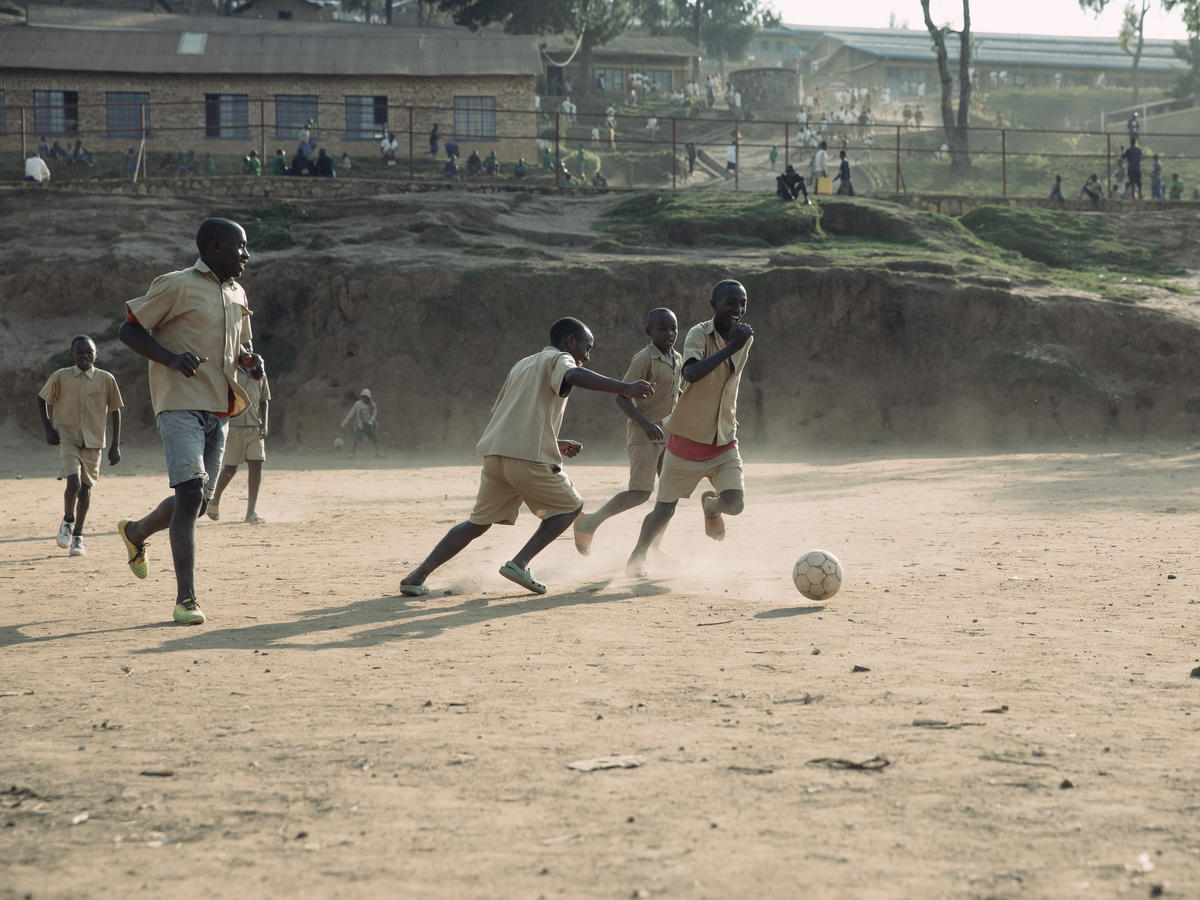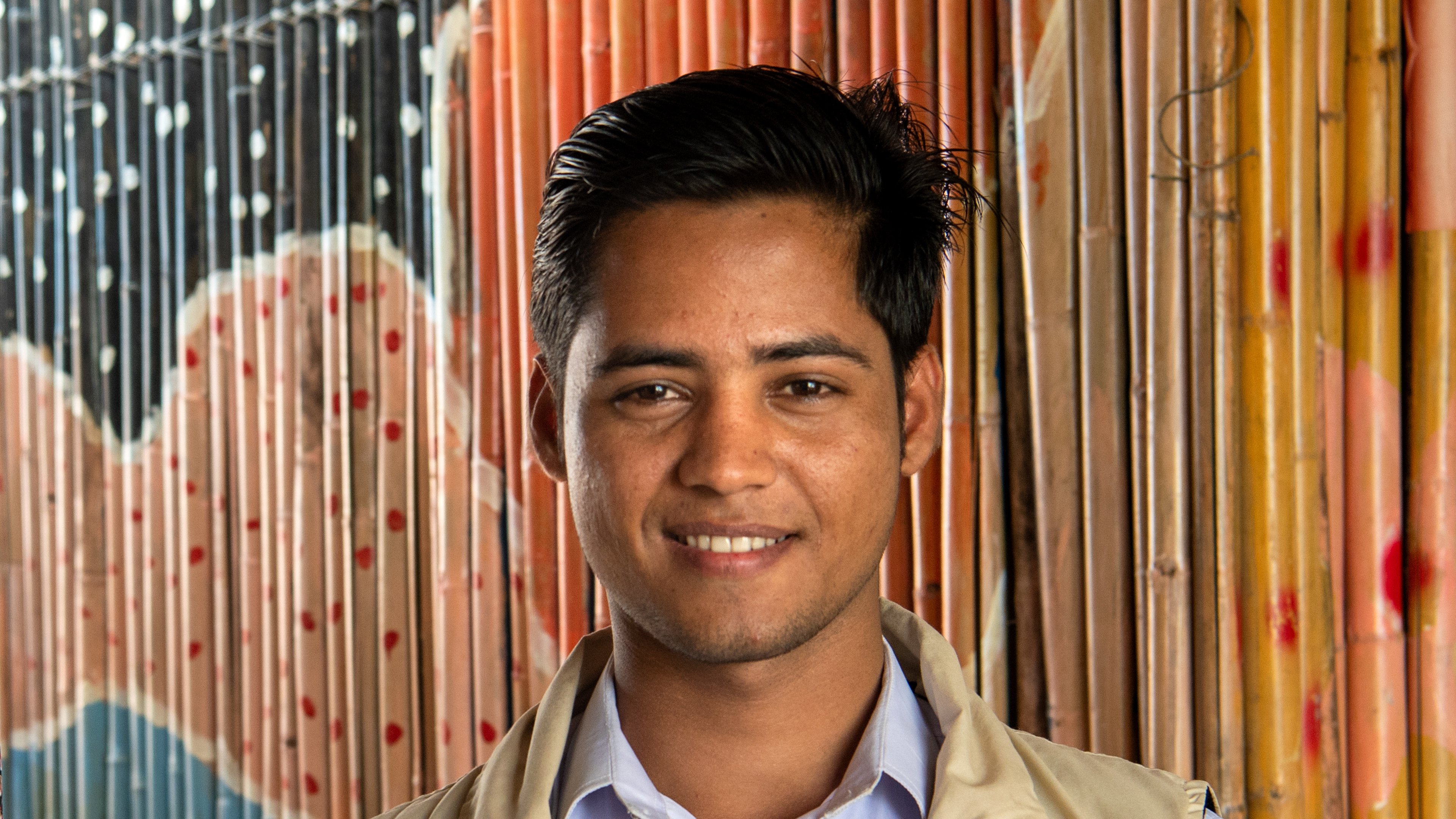A Centre to care for vulnerable children in Nepal
A Centre to care for vulnerable children in Nepal

DAMAK, Nepal, 14 August (12 (UNHCR) - Four-year-old Kriti shouts greetings to all visitors at the Early Childhood Development Centre (ECDC) near the Sanischare refugee camp in eastern Nepal; a transformation from a year ago.
"He was a very difficult child. He used to cry and remain aloof some of the time," remembers Durga Wagle, facilitator at the Centre. Now Kriti is popular for being the most enthusiastic and bright.
Kriti went through a very difficult period. His father was an alcoholic and his mother unable to cope, left the family and remarried. Kriti lives with his 50-year-old grandmother who cannot provide good care and attention as she works outside the camp during daytime. Many times Kriti is alone during the day, depending on neighbours for any help.
The ECDC built by the UN refugee agency supports more than 30 children like Kriti in the age group of two to five, both from the refugee and host communities. It was built near the Sanischare camp for easy access for both communities. The camp still hosts some 10,940 refugees from Bhutan who came to Nepal in the early 1990s.
The concept behind the Centre is to help children who are vulnerable to face protection risks as their parents leave them with inadequate or no supervision when involved in their daily activities.
"Looking at the desperate situation of many children like Kriti both in the camps and in the host community, we felt the need for a special day care facility which provides a safe and nurturing environment for these children," said Sangita Khatiwada, Senior Protection Assistant at UNHCR's sub-office in the eastern Nepal town of Damak.
Sangita added: "This centre has helped the parents concentrate on their daily activities and at the same time has given their children a learning opportunity based on early childhood development and education principles."
Children attending the Centre come from different and difficult backgrounds. "Some are from families who are very poor; some with domestic violence issues, and others with separated or disabled parents. All these factors could potentially lead the children to be more exposed to protection risks," said the supervisor of the Centre, Ramesh Adhikari.
The Centre is run by a 12-member management committee involving both refugees and host communities. "It has become a solid example of good cooperation and relationship between the two communities," said Eirin Broholm, Associate Community Services Officer at the UNHCR Sub-Office.
Parents drop off their children at the Centre at around eight in the morning. The classroom soon becomes a busy and fun place.
Devi Chaudhari, a single mother from the village adjoining the camp brings her three-year-old daughter every day to the Centre. "We are lucky that we got this facility. The activities at the Centre have helped a lot in the overall development of my daughter and helped me concentrate in my activities," said Devi.
Listening to stories, dance and music, painting, and building with small plastic blocks keeps the children busy at the Centre. The "outside time" is the favorite for all where they play to their heart's content. Mealtime is fun time where some share and eat their home-made lunches and some of the youngest are fed by the helpers. By four in the afternoon, the children bid goodbye and leave for home with their parents.
"We receive requests from a large number of parents but due to the funding and space constraints the Centre has been able to provide services to a limited number of families only," added Durga Wagle.
UNHCR regularly monitors the activities at the Centre and funds for training needed for the facilitators and teachers.
"It is really nice to see the happy faces of these children. The Centre has ensured that vulnerable children from both communities have access to quality care arrangements and has increased opportunities for vulnerable refugees and host community mothers," said Sangita.
By Pukar Ghimire and Nini Gurung in Damak, Nepal








